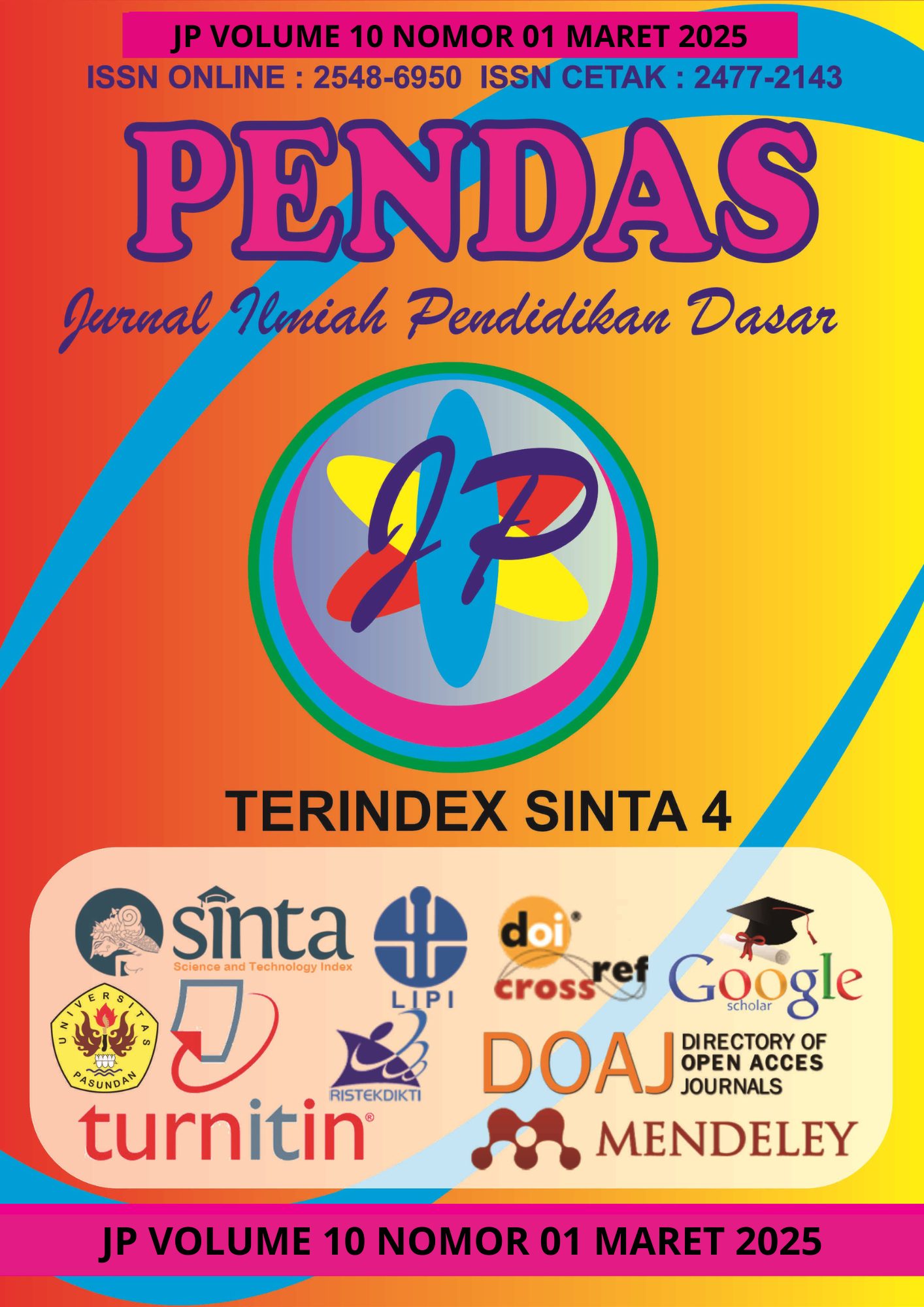PENGARUH MODEL PROBLEM BASED LEARNING DAN MOTIVASI BELAJAR TERHADAP KEMAMPUAN BERPIKIR KRITIS SISWA PADA MATA PELAJARAN ILMU PENGETAHUAN ALAM DI SEKOLAH DASAR
DOI:
https://doi.org/10.23969/jp.v10i01.21879Keywords:
Problem Based Learning, learning motivation, critical thinking skills, elementary science educationAbstract
This study aims to analyze the effect of the Problem-Based Learning (PBL) model and learning motivation on students' critical thinking skills in Science subjects at the elementary school level. The research employs an experimental method with a 2x2 factorial design, involving 130 sixth-grade students from two elementary schools in Surabaya. The sample consists of an experimental class taught using the PBL model and a control class taught using the STAD model. Data were collected through validated critical thinking tests and learning motivation questionnaires. The average critical thinking score of students taught with PBL was 78.5, while students taught with STAD scored an average of 69.8. Hypothesis testing using two-way ANOVA showed an F-value of 15.72 for the effect of the learning model, which is greater than the F-table value of 3.92 at a 0.05 significance level. Additionally, students with high learning motivation scored an average of 81.3, compared to 67.2 for those with low motivation. Hypothesis testing indicated that students with high motivation demonstrated better critical thinking skills than those with low motivation (F-value 12.64 > F-table 3.92). A significant interaction between the learning model and motivation was also found (F-value 8.45). Theoretically, the findings support constructivist theory, which emphasizes the importance of problem-based learning in developing higher-order thinking skills. Teachers need to identify students' motivation levels to provide appropriate support. It is recommended that teachers participate in training to design and implement problem-based learning effectively.
Downloads
References
Afifah, R. & Kusuma, D. (2021). Kemampuan berpikir kritis dan pentingnya dalam pendidikan. Jurnal Pendidikan dan Pembelajaran, 9(3), 156-163.
Aulia, R. & Budiarti, Y. (2022). Pembelajaran berbasis masalah (Problem Based Learning) dalam meningkatkan kemampuan berpikir kritis siswa. Jurnal Pendidikan IPA, 12(2), 234-245.
Bariyah, A., Jannah, M., & Ruwaida, H. (2023). Motivasi dalam pembelajaran: Pengaruhnya terhadap kinerja dan kemampuan berpikir siswa. Jurnal Psikologi Pendidikan, 10(1), 72-85.
Dharma, H., Tasrikah, S., & Churiyah, R. (2020). Implementasi model pembelajaran berbasis masalah (PBL) dalam meningkatkan kemampuan berpikir kritis siswa. Jurnal Inovasi Pendidikan, 15(3), 95-102.
Deci, E. L., & Ryan, R. M. (2000). The "what" and "why" of goal pursuits: Human needs and the self-determination of behavior. Psychological Inquiry, 11(4), 227-268. https://doi.org/10.1207/S15327965PLI1104_01
Masitah, S. (2022). Penyebab rendahnya kemampuan berpikir kritis siswa di Indonesia. Jurnal Pendidikan dan Keterampilan, 6(4), 301-312.
OECD. (2020). PISA 2018 Results: What Students Know and Can Do. Volume I: Performance of Students in Reading, Mathematics, and Science. Organisation for Economic Co-operation and Development.
Prasetyo, D., & Utami, H. (2021). Pengaruh pembelajaran berbasis masalah terhadap keterampilan berpikir kritis siswa. Jurnal Pendidikan dan Teknologi, 11(2), 189-200.
Rachmadtullah, R., Setiawan, A., Wasesa, D., & Wicaksono, I. (2023).
Peningkatan kemampuan berpikir kritis melalui model pembelajaran berbasis masalah pada mata pelajaran IPA. Jurnal Pendidikan Dasar, 17(1), 18-27.
Rogers, T., & Revesz, M. (2019). A guide to conducting factorial experiments in educational research. Educational Research Review, 15, 42-57.
Sari, W., Irawan, Y., & Pratiwi, A. (2021). Motivasi belajar dan kaitannya dengan kemampuan berpikir kritis pada siswa. Jurnal Ilmu Pendidikan, 17(3), 120-130.
Yuliana, Y., & Sari, S. (2020). Efektivitas model Problem Based Learning (PBL) dalam meningkatkan kemampuan berpikir kritis siswa. Jurnal Pendidikan dan Pengajaran, 28(2), 73-85.
Downloads
Published
Issue
Section
License
Copyright (c) 2025 Pendas : Jurnal Ilmiah Pendidikan Dasar

This work is licensed under a Creative Commons Attribution 4.0 International License.














































